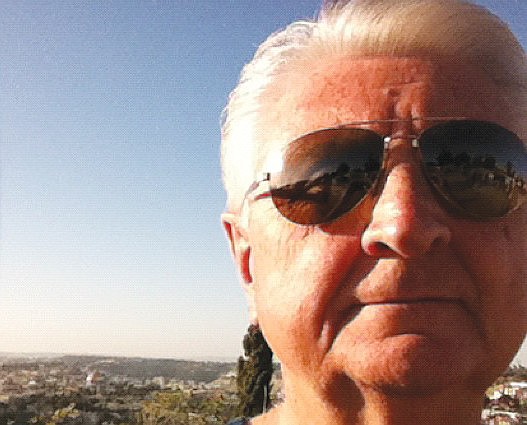- November 23, 2024
-
-
Loading

Loading

People say first impressions are lasting. I returned recently from a trip to Israel, my first, with three everlasting impressions.
• Israel is ancient on the surface, yet new at its core.
• Israel, like its capital, Jerusalem, is divided but yearning for unity.
• Israel thrives in a toxic environment.
In the first two days of our visit — as part of a group organized by the Jewish Federation of Sarasota-Manatee — we traveled to the adjoining cities of Jaffa, founded more than 4,000 years ago, and Tel Aviv, founded in 1912. These cities symbolize how Israel’s ancient roots gave birth to a modern and cosmopolitan culture.
Viewing Tel Aviv from Jaffa, you can see why Israel is called the “startup nation.” Corporations such as Google, Microsoft and Yahoo have a major presence. When you check out at any Publix super market, you will be accessing a software program developed in Israel. The old and the new.
When we arrived in Jerusalem, we quickly learned how it was divided into the Arab, Christian, Armenian and Jewish quarters. Each is unique, yet separate, with commerce freely flowing between them.
Likewise, Israel is divided as the Jewish state, with the Palestinian West Bank and Gaza Strip as remnants of the 1967 war. The commerce between these so-called territories is limited and often restricted. Yet every Israeli we met wants peace, which will require unifying both Jerusalem and Israel.
Some talk about a “one-state” solution, while the official government stance is for a two-state solution. Having traveled across Israel and seen the pre-1967 borders, I cannot envision a two-state solution with so little land to divide. I am convinced, more now than ever, Israel cannot exchange land for peace. Rather, it can and does today offer peace and equal justice under the law to all living in Israel.
And, yet, despite this desire for peace and justice, you can see Israel is seated in a toxic environment.
Israel is a desert, with the southern half and much of the West Bank uninhabitable. But out of this desert wasteland, Israel has created an oasis.
When it formed in 1948, almost all food was imported. Today, Israel is a net exporter of food products. The highest-producing milk cows in the world are from Israel. You can attribute Israel’s agricultural success to the industriousness and ingenuity of the people, Arab and Jew alike.
A recent survey ranked Israelis as the 14th happiest people in the world. This is astonishing, given Israel is surrounded by nations who have been or are in a constant state of war with it.
We toured the northernmost section of the Golan Heights. Our guide was retired Israeli Defense Forces Col. Kobi Marom. He showed us how Israel is truly vulnerable. We were a quarter-mile from the Lebanese border, where 50,000 Hezbollah rockets are pointed toward Israel. We drove just a few miles to the Syrian border, a nation in turmoil. Marom explained how important it is for Israel to maintain a credible deterrence against any threat.
Security drives the Israeli people. Dr. Reuven Hazan, director of the Political Science Department at Hebrew University, said while Americans are focused on the economy and social issues this election cycle, Israelis care most about security.
On our final day, we visited Yad Vashem — the Holocaust Museum. I purchased a memorial pin depicting barbed wire turning into an olive branch with leaves. The quote on the packaging states, “Remembering the Past, Shaping the Future.”
This says it all about Israel.
Dr. Rich Swier Sr., a retired Army lieutenant colonel, was awarded two bronze stars in the Vietnam War. He holds a doctorate of education from the University of Southern California and a master’s in management information systems from George Washington University. He is president of the Sarasota County Veterans Commission and editor of Red County-Sarasota. He also hosts a radio talk show on WWPR AM 1490.